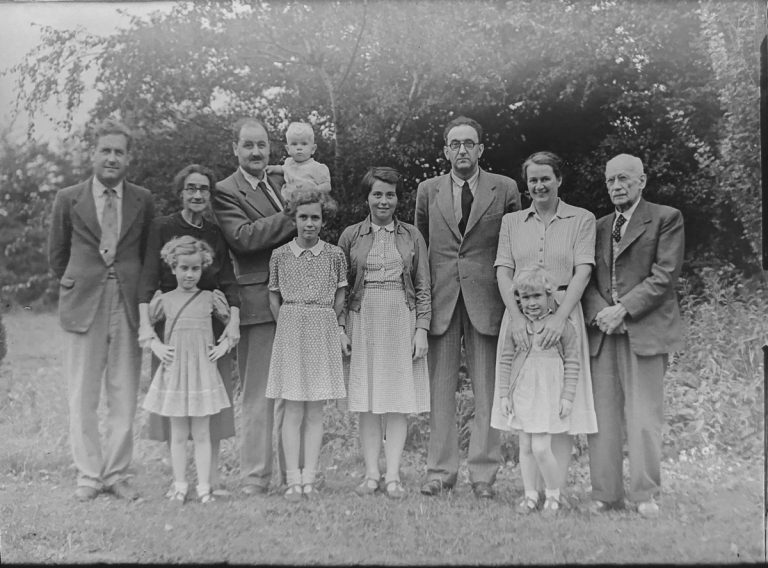Creating deepfakes of your dead relatives out of nostalgia? It’s a thing, but it comes with a hefty price

We’ve previously witnessed the appearance of AI-generated deepnudes, which, by the way, were later on revealed as being made using real images of sexual abuse—how awful. Around the same time, Kanye West thought it would be a great idea to buy his then-wife Kim Kardashian a talking hologram of her late father, Robert Kardashian. No need to ponder why they’re currently getting divorced. Even deepfake memes became popular!
All in all, it’s safe to say that deepfakes have comfortably infiltrated our lives, just like the rest of the, somewhat surprisingly, recent technologies that we take for granted in our daily life. Just because one trend is never enough for gen Zers—I should know, I am one myself—deepfakes now play a part in yet another trend of the moment: nostalgia.
From Y2k fashion to the viral retro music genre vaporwave, it’s obvious that we have a thing for reminiscence and sentimentality, even for eras we weren’t born in time for. This explains why we’re now all going berserk for MyHeritage’s new free feature called ‘deep nostalgia’, which allows users to upload pictures of their late relatives (or anyone else too, someone uploaded a photograph of the legendary Rosalind Franklin, ‘just because’) and have them come to life, eyes swivelling, faces tilting, and all that jazz.
Rosalind Franklin brought to life with #DeepNostalgia pic.twitter.com/DNQ3kzuf6h
— Dr Adam Rutherford (@AdamRutherford) February 26, 2021
The Black Mirror-esque technology has already taken TikTok by storm, with users sharing videos of them showing their parents AI-generated animations of their great great grandfather, grandmother, and other relatives, inevitably leading to emotional reactions and sometimes tears.
The creepy yet fascinating tool comes from MyHeritage, the Israeli online genealogy platform mostly known for its DNA test kits which provide customers with DNA matching and ethnicity estimates. But MyHeritage’s AI-powered viral deepfakery isn’t as complicated as it seems: the company is simply going straight for tugging on your heartstrings to grab data that can then be used to drive sign-ups for its other (paid) services. In other words, selling DNA tests is its main business, not ‘making it’ on TikTok, although that’s always a plus for any company.
It’s free to animate a photo using the deep nostalgia tech on MyHeritage’s website, but you don’t get to see the result until you hand over at least an email address and agree to its privacy policy and terms and conditions. Both of which have previously attracted a number of concerns over the years.
As TechCrunch explains, last year for example, “the Norwegian Consumer Council reported MyHeritage to the national consumer protection and data authorities after a legal assessment of the T&Cs found the contract it asks customers to sign to be ‘incomprehensible’.”
Back in 2018, MyHeritage also suffered a major data breach. The data from that breach was later found for sale on the dark web, among a wider cache of hacked account info pertaining to several other services.
That being said, if you’re able to set aside the ethics of encouraging people to drag their long-lost relatives into the dark hole that is MyHeritage’s cross-sell DNA testing, then yes, the deepfake tool is pretty impressive.
But MyHeritage is not the only company to be praised (or condemned) for the deep nostalgia trend. Another Israeli company, D-ID, helped power it. As a TechCrunch Disrupt Battlefield alumni, D-ID started out building tech to digitally de-identify faces with an eye on protecting images and video from being identifiable by facial recognition algorithms. Oh, the irony!
The company released a demo video of the newer, photo-animating technology last year. The tech uses a driver video to animate the photo, mapping facial features from the photo onto that base driver to create a “live portrait.”
“The Live Portrait solution brings still photos to life. The photo is mapped and then animated by a driver video, causing the subject to move its head and facial features, mimicking the motions of the driver video,” D-ID said in a press release. “This technology can be implemented by historical organizations, museums, and educational programs to animate well-known figures.” So, not really your great great uncle.
Like all good things in life, MyHeritage’s deep nostalgia feature is not completely free—after the first few free nostalgia hits, users are asked to pay a monthly fee. I would be lying if I said I’m not going to be one of the many to have a fiddle with the tool, however, knowing that a paywall is bound to cut me short in my nostalgia mania is a welcomed thought.





